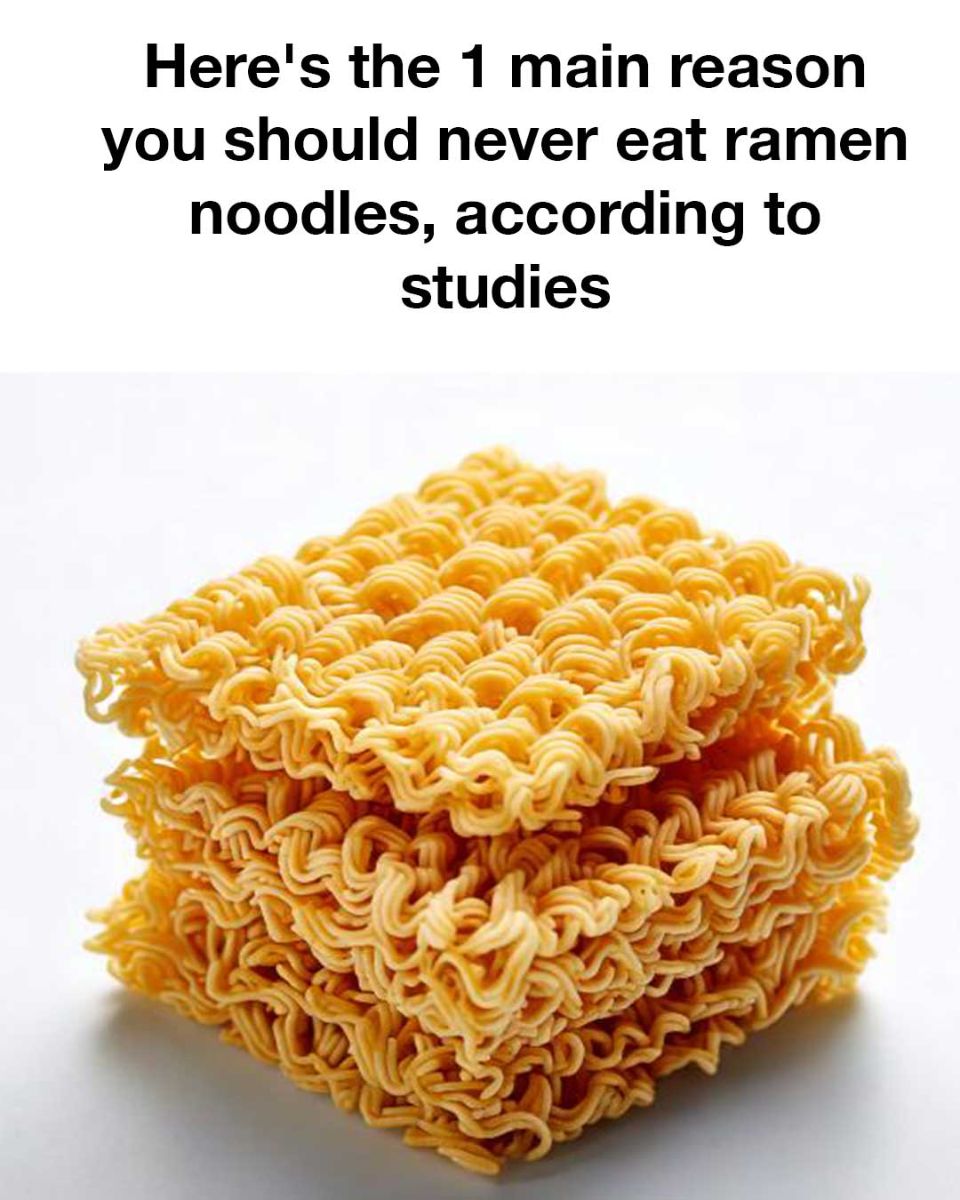ADVERTISEMENT
# **Surprising Truth About Ramen Noodles: A Hidden Health Concern**
Ramen noodles have long been a staple for busy individuals, college students, and those seeking a quick and inexpensive meal. Whether it’s a late-night snack or a speedy dinner, ramen provides convenience, taste, and comfort. However, beneath their popularity lies a surprising truth: ramen noodles may pose some health risks that you might not be aware of.
While they are easy to prepare and satisfy your cravings, these noodles are far from being the healthiest option. In this article, we’ll explore the hidden health concerns surrounding ramen noodles and provide insights into why they should be consumed in moderation.
—
## **1. High Sodium Content**
One of the biggest health concerns surrounding ramen noodles is their **excessive sodium content**. A single serving of instant ramen can contain up to 1,500 milligrams of sodium, which is about two-thirds of the recommended daily intake for an average adult. This amount can be even higher depending on the brand and the seasoning packet.
### **Why It’s a Concern:**
Excessive sodium intake can lead to a range of health issues, including:
– **High blood pressure (hypertension)**: Too much sodium can cause your body to retain water, increasing blood pressure and putting strain on the heart and kidneys.
– **Increased risk of heart disease**: Long-term high sodium intake can increase the risk of heart disease, stroke, and kidney disease.
– **Dehydration**: Sodium draws water out of cells, leading to dehydration, especially if you’re not drinking enough water to counteract it.
While ramen may satisfy your hunger, it’s important to be mindful of the sodium levels and adjust your diet accordingly.
—
## **2. Low Nutritional Value**
Although ramen noodles are quick and filling, they don’t offer much in terms of **nutritional value**. A typical serving contains very little protein, fiber, vitamins, or minerals, which are essential for overall health. While the seasoning packet may contain some flavor, it doesn’t provide the necessary nutrients that your body needs for optimal functioning.
### **Why It’s a Concern:**
A diet consisting largely of low-nutrient foods like ramen can lead to:
– **Nutrient deficiencies**: Without a variety of fruits, vegetables, and other nutrient-rich foods, your body may miss out on vital vitamins and minerals, leading to potential deficiencies over time.
– **Poor digestion**: The lack of fiber in ramen noodles can contribute to digestive issues, such as constipation.
– **Imbalanced diet**: Relying on ramen noodles as a primary food source may leave you with an unbalanced diet, missing out on essential nutrients like antioxidants, fiber, and healthy fats.
To make ramen more nutritionally balanced, consider adding vegetables, lean proteins, or tofu to improve its nutrient profile.
—
## **3. Harmful Additives and Preservatives**
Many instant ramen noodles contain harmful additives and preservatives to extend their shelf life and enhance flavor. One of the most concerning ingredients is **TBHQ (tertiary butylhydroquinone)**, a synthetic antioxidant used to prevent the oil in the noodles from going rancid. This preservative has been linked to potential health risks when consumed in large amounts.
### **Why It’s a Concern:**
Some studies suggest that TBHQ and other artificial additives may be associated with:
– **Allergic reactions**: Some individuals may experience allergic reactions to artificial additives, leading to symptoms like headaches, rashes, or gastrointestinal distress.
– **Cancer risk**: Long-term exposure to high levels of certain preservatives and additives may increase the risk of developing cancer, although more research is needed.
– **Negative impact on metabolism**: Additives like TBHQ may interfere with the body’s ability to process fats and could contribute to metabolic issues.
For a healthier alternative, look for brands that offer **organic** or **non-GMO** ramen noodles, or opt for homemade ramen recipes.
—
## **4. The “Fried” Noodles Issue**
Many instant ramen noodles are deep-fried before packaging to speed up the cooking process. This deep-frying technique makes the noodles crispier and enhances flavor, but it also contributes to a **high fat content**.
### **Why It’s a Concern:**
The frying process adds unhealthy **trans fats** to ramen noodles, which can have a significant impact on your health. Trans fats have been linked to:
– **Increased cholesterol levels**: Trans fats can raise levels of LDL (bad cholesterol) while lowering HDL (good cholesterol), increasing the risk of cardiovascular diseases.
– **Weight gain and obesity**: Foods high in trans fats are calorie-dense and can contribute to weight gain when consumed in excess.
– **Inflammation**: Consuming trans fats regularly may lead to inflammation, which can contribute to conditions like arthritis and other chronic health problems.
Choosing ramen noodles that are not fried or opting for a **baked** version can help reduce your intake of unhealthy fats.
For Complete Cooking STEPS Please Head On Over To Next Page Or Open button (>) and don’t forget to SHARE with your Facebook friends
ADVERTISEMENT
